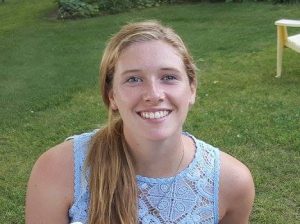
My name is Nora O’Leary and this summer I am working at HOPE, a non-profit organization that provides food, clothing, and resources to low-income and homeless families in Addison County. HOPE has a food shelf, which is available to families once a month, and a surplus area stocked with day-old food from Hannaford’s supermarket and other generous locals. The organization earns money from sales at their thrift shop, Retroworks, which they use to aid families with a variety of expenses, from heating bills, to laundry vouchers, to car repairs. HOPE also provides assistance to homeless individuals with basic necessities, camping supplies, and with the difficult transition out of homelessness. Because HOPE is not a government-affiliated organization, the staff is able to be flexible and provide financial assistance based on a person’s needs at any given time rather than following strict guidelines. That means there is a lot of personal interaction with the clients, because the staff seeks to hear everyone’s stories and understand their struggles, in order to help them in the most effective way possible. As HOPE’s receptionist this summer, I have had the opportunity to have the initial contact with every client who walks in the door, hear their stories, and figure out how best to help them.
Coming into this summer, I wasn’t sure how this internship would relate to my (hopefully) future career as an elementary school teacher. However, I’ve found myself thinking about how closely related the cycle of poverty and education really are. Many clients that HOPE works with struggle with obesity, or drug addictions, have been incarcerated, or have never finished high school. These problems are ones that people are often harshly judged for in our society, because they all involve making some poor choices along the way. However, more and more I have thought about the young child within each of those clients who comes in. Who taught that child about nutrition, or warned them against drug use, or encouraged them to release frustration in healthy, non-violent ways? What about the child who quit school to start working and help his parents pay to keep the heating on in the winter? Many of the clients who come into HOPE everyday never had someone to teach them important lessons about finances and managing money, or a positive role model whose example they could follow in life. A teacher can be a hugely positive influence on a child, and this job has made me so eager to be that for a child someday. I continue to think about how a client’s life might have been different had they someone who believed in them, and encouraged them to work their hardest in and out of school everyday. I am hugely grateful for so many things this summer has taught me, but motivating me to continue on my way to becoming a public school teacher is an unforeseen and wonderful outcome
Nora O’Leary, ’17
